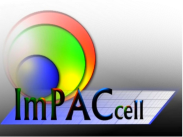PRISM: Multimodal Imaging and Spectroscopy Research Platform (Contact inside NuMeCan: David Val-Laillet)
The Research Platform for Multimodal Imaging and Spectroscopu (PRISM) and its four components: Agro-SCANs (responsible outside NuMeCan: M. Musse), Ani-SCANs (responsible outside NuMeCan: C.H. Malbert), Bio-RMN (responsible outside NuMeCan: A. Bondon) and Bio-SCANs (responsible outside NuMecan: Pierre-Antoine Eliat). PRISM coordination outside NuMeCan: F. Mariette; contact PRISM inside NuMeCan: D. Val-Laillet, david.val-laillet@inrae.fr).
The PRISM platform (Multimodal Imaging and Spectroscopy Research Platform), composed of four components, Agro-SCANs, Ani-SCANs, Bio-SCANs and Bio-RMN, relies on the scientific skills of research departments under the (co)supervision of the University of Rennes 1, the University of Angers, INRAE and CNRS. PRISM’s expertise covers the biomedical field as well as structural biology and molecular interactions, chemistry, plant and animal physiology, and food sciences. PRISM (https://www.pf-prism.org/) has a technological set covering several imaging modalities: Scintigraphy, MRI, PET, X-ray scanner. This imaging equipment is supplemented by several NMR spectrometers offering a wide range of applications. In Rennes, the Bio-RMN and Bio-SCANs components are Biosit platforms (https://biosit.univ-rennes1.fr). In Angers, the Bio-SCANs component is a platform of the SFR ICAT 4208.
The Ani-Scans component brings together specific skills and equipment dedicated to the imaging of large animals (pigs and minipigs), in particular: a positron emission tomograph for functional and molecular imaging of several organs (mainly the brain); a single-head gamma camera for digestive imaging; a two-head gamma camera for functional and molecular imaging of several organs; an X-ray scanner for the whole body; and a Doppler echotomograph. All imaging rooms are equipped with a dedicated station for anesthesia and multi-parameter monitoring. Several radiation-protected animal facilities are available for housing pigs and minipigs before and after imaging.
The Agro-Scans and Bio-SCANs components bring together specific skills and equipment in the field of nuclear magnetic resonance (NMR), whether in spectroscopy or preclinical imaging. More specifically, it offers access to two “clinical” 1.5 T and 0.2 T MRIs suitable for pig models (Rennes), two “preclinical” MRIs suitable for 4.7 T (Rennes) and 7 T rodent models (Angers), and an 11.7 T MRI micro-imaging system suitable for small samples (Rennes). On the Agro-Scans site, where MRI scans are performed on pig models, an approved animal facility allows animals to be accommodated upstream and downstream of imaging sessions performed under general anesthesia with MRI compatible equipment.
The NuMeCan EAT team (INRAE) has developed expertise in in vivo brain MRI in pigs, in addition to INRAE’s historical expertise in nuclear imaging in pigs. These developments have paved the way for new areas of research, particularly the exploration of brain responses to visual, acoustic or olfactory stimulation by functional MRI, but also by anatomical, spectroscopic or cerebral perfusion MRI. This research is being carried out as part of the evaluation of different therapeutic strategies in nutrition and health, including the use of functional food ingredients, weight loss surgery, electro-acupuncture, or organ transplantation. The strong synergy between the scientific expertise of NuMeCan, the combined technological and methodological approaches of the PRISM platform, the UE3P (https://www6.rennes.inrae.fr/ue3p/), the CSCGA (https://numecan.fr/cscga/) and the ARCHE animal facility constitute a complete and fully operational offer combining imaging, surgery and experimental management dedicated to pig and rodent models.
The PRISM platform is a member of:
- The Biogenouest network bringing together platforms in Brittany and Pays de Loire
- The IBISA network bringing together national platforms recognized for their R&D development and their openness to the entire scientific community
- The national infrastructure France Life Imaging
- The national AnaEE infrastructure
- PRISM has been ISO9001 certified since 2013
ImPACcell (A. Corlu; IBiSA)
 The platform is dedicated to cell content analysis service (HCS / HCA) to detect, analyze and quantify biological phenomena such as toxicity, cell motility, cell cycle, apoptosis, disruption of signaling pathways… The platform gathers 3 sets of equipments for automated cell culture and cellular test, multifactorial and multiparametric imaging analysis and bioscreening of exogenous molecules on various adherent cell lines. Cytotoxicity and genotoxicity studies can be performed to determine the acute and chronic effects of various compounds. The platform also offers specific training dedicated to automated image analysis.
The platform is dedicated to cell content analysis service (HCS / HCA) to detect, analyze and quantify biological phenomena such as toxicity, cell motility, cell cycle, apoptosis, disruption of signaling pathways… The platform gathers 3 sets of equipments for automated cell culture and cellular test, multifactorial and multiparametric imaging analysis and bioscreening of exogenous molecules on various adherent cell lines. Cytotoxicity and genotoxicity studies can be performed to determine the acute and chronic effects of various compounds. The platform also offers specific training dedicated to automated image analysis.






